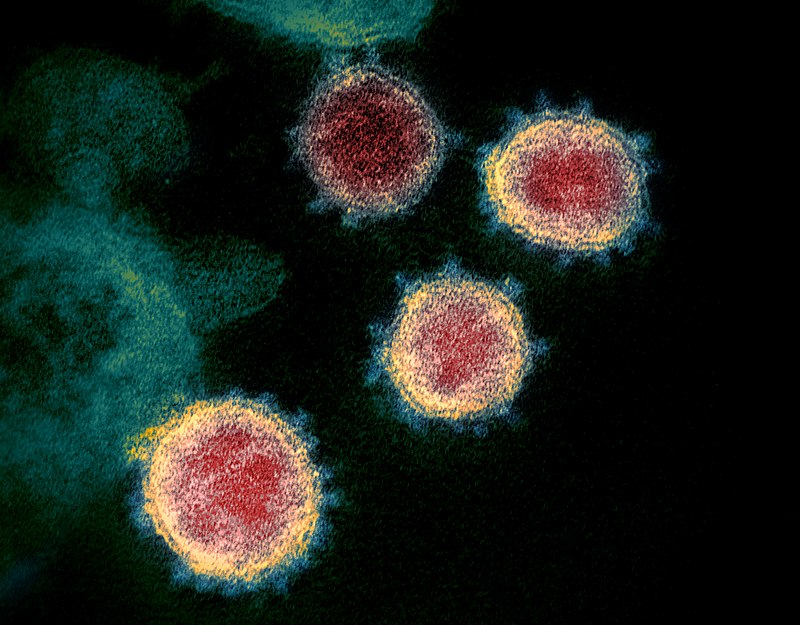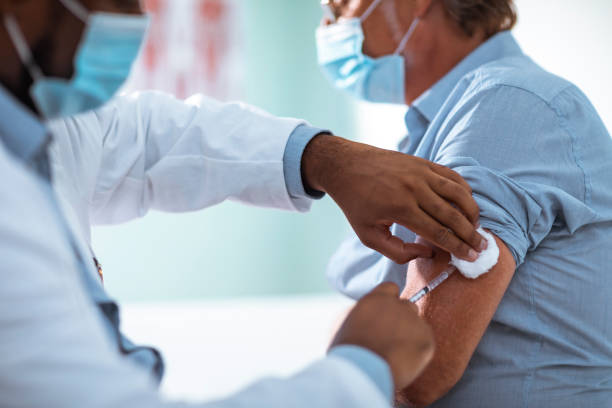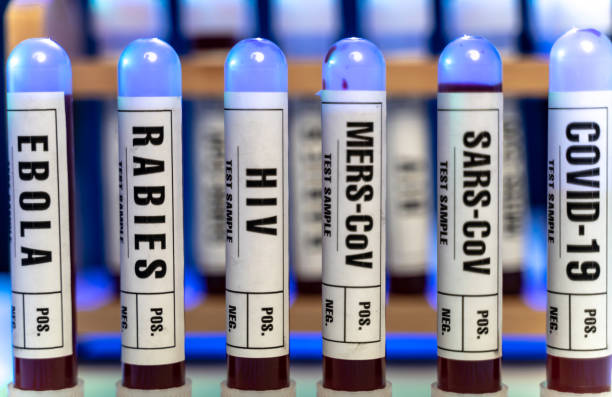
Severe Acute Respiratory Syndrome (SARS) is a serious and potentially life-threatening illness caused by a virus. It is most commonly spread through contact with an infected person or through droplets from a cough or sneeze. Symptoms of SARS include fever, chills, cough, chest tightness, headache, muscle aches, and difficulty breathing. It is important for those who are at risk of contracting SARS to know how to recognize and treat the symptoms, as well as how to prevent the spread of the virus. Severe Acute Respiratory Syndrome, also known as SARS, is a serious and potentially life-threatening illness caused by a virus. It is most commonly spread through contact with an infected person or through droplets from a cough or sneeze. SARS was first recognized in Asia in 2003 and caused a pandemic that spread to more than 30 countries and infected 8,000 people. Most people who become infected with the SARS virus do not become seriously ill, but SARS can cause death among those with weakened immune systems or who are over the age of 55. The risk of contracting SARS can be reduced by following proper hygiene techniques, including washing hands frequently with soap and water, and avoiding close contact with those who are sick. Anyone who experiences symptoms of SARS should seek medical attention as soon as possible. Although there is no cure for SARS, it can be treated with antiviral medications and supportive care.source
SARS is caused by a coronavirus, a type of virus that is named for its resemblance to a crown. The SARS virus is a type of coronavirus known as SARS-CoV. The SARS virus can be found in both humans and animals, and it spread from animals to humans in the early 1900’s in Asia. In the early 2000’s, a new strain of SARS-CoV emerged in Asia and spread to other parts of the world, including Canada and the United States. The SARS pandemic was first recognized in February 2003, with the initial cases reported in Guangdong, China. The virus was spread primarily through the respiratory tract by coughing or sneezing droplets. It was also spread through close contact with contaminated blood or needles, or through touching contaminated surfaces or objects.
SARS, or severe acute respiratory syndrome, is a viral respiratory illness caused by the SARS-CoV virus. The most common symptoms of SARS include:
- Fever
- Dry cough
- Difficulty breathing or shortness of breath
- Body aches
- Headache
- Sore throat
- Loss of appetite
- Diarrhea
Symptoms of SARS may appear 2-14 days after exposure to the virus. In some cases, symptoms may be mild, while in others, they can be severe and lead to severe respiratory illness, including pneumonia. If you experience any of these symptoms, it is important to seek medical attention as soon as possible.
SARS (severe acute respiratory syndrome) is a viral respiratory illness caused by the SARS-CoV virus. It was first identified in 2002 and caused a global outbreak in 2003. There is currently no specific treatment for SARS, and management of the disease is supportive. This means that treatment is aimed at relieving symptoms and improving overall care, rather than targeting the virus itself.
Treatment for SARS typically includes:
- Oxygen therapy: This may involve the use of oxygen tanks or other devices to increase the amount of oxygen in the body.
- Fluids: Patients with SARS may need to be given fluids through an IV to help prevent dehydration.
- Medications: Painkillers and fever-reducing medications may be used to help manage symptoms.
- Mechanical ventilation: In severe cases, patients may require mechanical ventilation (breathing support) to help them breathe.
It's important to note that SARS is no longer considered a public health emergency. There have not been any cases of SARS reported since 2004. If you have concerns about SARS or any other respiratory illness, it is recommended that you consult a medical professional.source
The risk of contracting SARS can be reduced by following proper hygiene techniques, including washing hands frequently with soap and water, and avoiding close contact with those who are sick. Anyone who experiences symptoms of SARS should seek medical attention as soon as possible. People who are at risk of developing SARS should avoid close contact with individuals who have been infected with the SARS virus, including those who are at risk of developing SARS and those who have been diagnosed with SARS. SARS can be spread through droplets from a cough or sneeze, so it is important to avoid close contact with people who are sick. It is important to cover coughs with a tissue and avoid touching your eyes, nose, or mouth. Individuals who have been exposed to SARS should avoid travelling by plane unless a doctor has given them permission to do so. Individuals who have travelled to an areas where SARS is present should monitor their health for 10 days after their return home.
Anyone can become infected with the SARS virus, but people who have weakened immune systems, pregnant women, young children, and the elderly are at a higher risk of developing severe SARS. Individuals who have been exposed to SARS and do not show any symptoms should receive a SARS vaccination and follow preventive measures in order to reduce the risk of developing SARS. People who have weakened immune systems due to conditions like HIV/AIDS, cancer, diabetes, or kidney disease are at a higher risk of developing severe SARS. Pregnant women and young children are also at a higher risk of developing severe SARS because their immune systems are not fully developed. The elderly are also at a higher risk of developing severe SARS due to a reduction in immunological function as a result of aging.
How to Recognize and Treat SARS
Anyone who has been exposed to SARS and experiences any of the SARS symptoms should seek medical attention, even if the symptoms appear mild. Individuals who have been exposed to SARS but do not show any symptoms should receive a SARS vaccination and follow preventive measures in order to reduce the risk of becoming severely ill. Individuals who have been exposed to SARS and have developed any of the following symptoms should be tested for SARS and be isolated from other individuals until the test results are confirmed:
- Fever
- Chest pain
- Shortness of breath
- Abnormal coughing
- Diarrhea
- Nausea
- Headache
- Muscle aches
Conclusion
SARS is a serious and potentially life-threatening illness caused by a virus. It is most commonly spread through contact with an infected person or through droplets from a cough or sneeze. Symptoms of SARS include fever, chills, cough, chest tightness, headache, muscle aches, and difficulty breathing. Someone who has been exposed to SARS should receive a vaccination and follow preventive measures in order to reduce the risk of becoming severely ill. Individuals should also follow proper hygiene techniques, including washing hands frequently with soap and water, and avoiding close contact with those who are sick. By understanding SARS and its associated risks, individuals can reduce their chances of becoming infected and help protect their families and communities.
Reference:
https://www.nhs.uk/conditions/sars/
https://en.m.wikipedia.org/wiki/SARS
https://www.who.int/health-topics/severe-acute-respiratory-syndrome
https://www.mayoclinic.org/diseases-conditions/sars/symptoms-causes/syc-20351765


Congratulations @bd-cryptotrader! You have completed the following achievement on the Hive blockchain And have been rewarded with New badge(s)
Your next target is to reach 100 posts.
You can view your badges on your board and compare yourself to others in the Ranking
If you no longer want to receive notifications, reply to this comment with the word
STOPTo support your work, I also upvoted your post!
Check out our last posts:
Support the HiveBuzz project. Vote for our proposal!